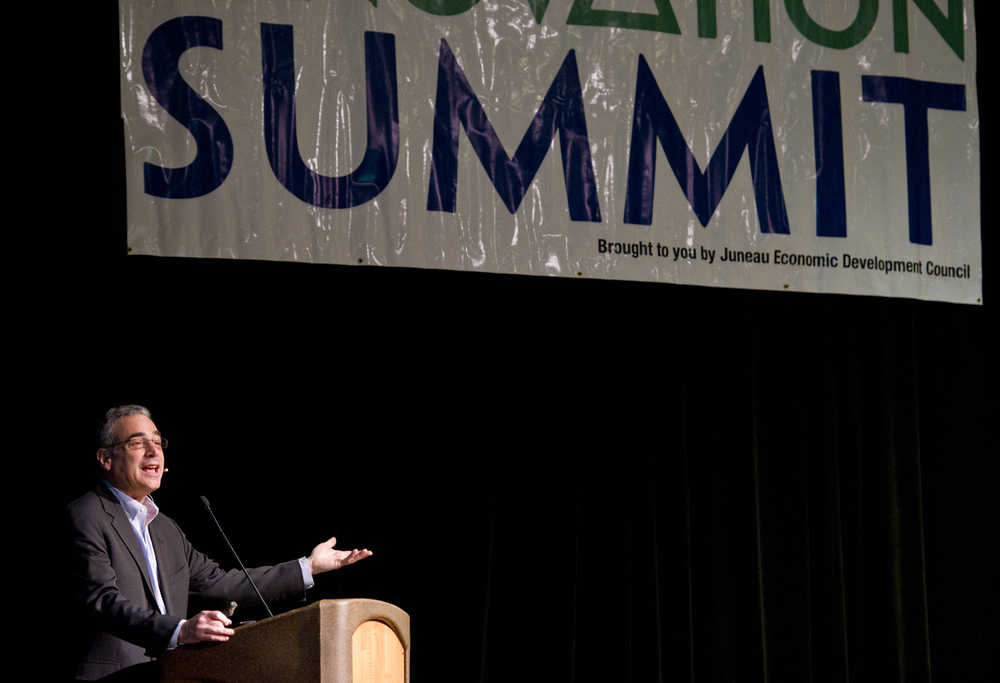If there’s one impression that Michael Shuman, the first of three keynote speakers at this year’s Innovation Summit, left with his audience, it’s the importance of local businesses.
Each year the annual summit, hosted by the Juneau Economic Development Council, brings together business owners, policy makers and other movers and shakers in economic development to discuss the future of the region.
“We all love economic development, but we all have different opinions about how to make it happen, and Alaska has a number of challenges when it comes to economic development,” Shuman, an economist, author and entrepreneur, told a crowd of a couple hundred people in the main room of Centennial Hall.
Among those challenges, he said, is the fact that Southeast Alaska’s economy is not very diverse. Nearly one third of all wages paid in Juneau are state government wages, according to the JEDC’s most recent Economic Indicators report. Also problematic is the state’s current budget crisis. According to Shuman, neither of these problems are insurmountable so long as the region shifts its focus to helping local businesses.
First on Shuman’s to-do list for communities in need of economic development, which is arguably all of them, is to maximize local ownership. Shuman listed several reasons why this is important. Local businesses boost tourism by offering more community-specific attractions, he said. They also put about two-and-a-half times more money back into the communities in which they are based.
Shuman hit this point home by emphasizing that local businesses allow for more local control, a point he made by reopening Juneau’s fresh Walmart wound.
“When we put our fate into the hands of a business that is not well connected to the community, stuff happens; stuff happens that is beyond your control,” he said, adding that the city should look to fill the hole left by Walmart’s closure last week with locally owned businesses.
Luckily, given the state’s budget problems, Shuman’s all-local prescription doesn’t include a lot of public investment. In fact, he advised policy makers to “stop discriminating against local businesses; let them thrive and they will do great,” he said. Going beyond his initial advice to policy makers to look local to replace Walmart, he cautioned policy makers from spending resources attracting outside businesses.
“At the end of the day, I do believe, that most economic development has to be driven through the private sector,” he said, discouraging entrepreneurs from seeking publicly funded grants. Instead, he proposed the need for more “pollinator businesses” that he said will offer private-sector solutions for new businesses.
Shuman likened some members of the business community to bees that pollinate a field. They do work that is beneficial to everybody within the community without seeking reimbursement, at least in the traditional sense. Shuman gave more than a dozen examples of these pollinator businesses, such as Main Street Genome. Based in Washington D.C., Main Street Genome helps businesses save money by diving into data and looking for potential savings. Both businesses then split the savings so Main Street Genome is able to help businesses without taking money from their bottom line.
“Pollinators set in place infrastructure that helps support multiple businesses,” Shuman said, comparing them to the Genie from Aladdin. “They allow us to wish for more wishes.”

